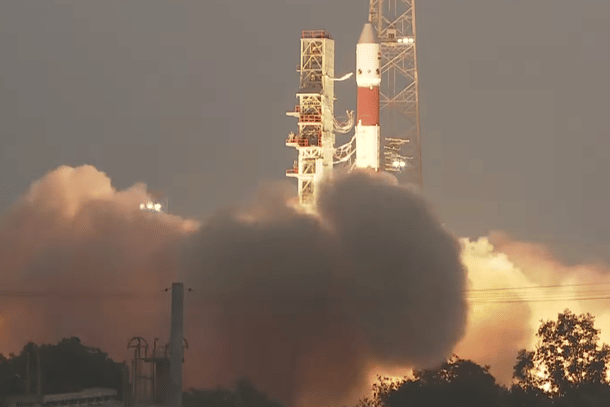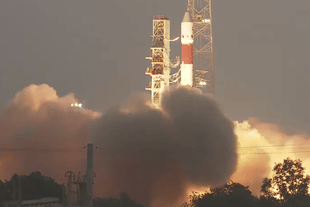News Brief
EOS-09 Mission 'Could Not Be Accomplished', Says ISRO After PSLV-C61 Faces Issue Mid-Flight
Kuldeep Negi
May 18, 2025, 04:43 PM | Updated 04:43 PM IST
Save & read from anywhere!
Bookmark stories for easy access on any device or the Swarajya app.


The Indian Space Research Organisation (ISRO) on Sunday (18 May) attempted its 101st major mission with the PSLV-C61 rocket carrying the EOS-09 satellite, but the launch ended in failure shortly after liftoff.
The PSLV-C61 was intended to place the Earth Observation Satellite EOS-09 into a Sun Synchronous Polar Orbit (SSPO), but the mission could not be completed.
ISRO's chairman V Narayanan confirmed that the first two stages of the space agency's trusted four-stage Polar Satellite Launch Vehicle (PSLV) performed normally.
"Today we targeted the 101st launch from Sriharikota, the PSLVC61 EOS-09 mission. The PSLV is a four-stage vehicle and up to the second stage, the performance was normal. The third stage motor started perfectly but during the functioning of the third stage we are seeing an observation and the mission could not be accomplished," Narayanan said, NDTV reported.
“We will come back after analysis,” added the ISRO Chief.
In a statement posted on X, ISRO wrote, “Today 101st launch was attempted, PSLV-C61 performance was normal till 2nd stage. Due to an observation in 3rd stage, the mission could not be accomplished.”
The mission was part of ISRO’s push for sustainable space operation, with EOS-09 equipped with deorbiting fuel to ensure safe disposal at the end of its service.
The PSLV-C61 marks the 63rd flight of the PSLV family and the 27th in the PSLV-XL configuration.
EOS-09 was designed as a cutting-edge Earth observation satellite with C-band synthetic aperture radar, high-resolution images of the Earth's surface under all weather conditions, day or night—aimed at strengthening India’s surveillance, disaster management, and resource monitoring systems.
Kuldeep is Senior Editor (Newsroom) at Swarajya. He tweets at @kaydnegi.





